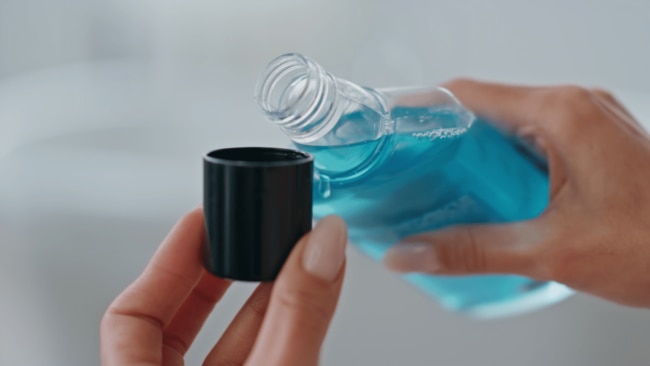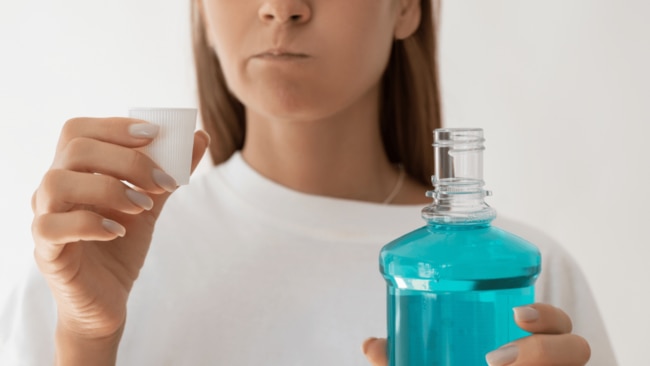Does mouthwash really cause high blood pressure?
Does fresh breath come at a cost?

Lifestyle
Don't miss out on the headlines from Lifestyle. Followed categories will be added to My News.
We all want minty fresh breath. But could your daily mouthwash rinse impact your blood pressure? Some researchers think so.
Whether it’s been a part of your day for years, or you’re just recently considering adding it into your oral hygiene routine, mouthwash can feel like the only way to completely clean your mouth.
Brushing your teeth sometimes just can’t deliver the same fresh feeling as a good rinse, and many say mouthwash is the only way to really deep clean your teeth at home.
But some researchers believe the last step of your teeth cleaning routine could be linked to higher blood pressure.

The link between mouthwash and high blood pressure
One study published in Blood Pressure found a higher risk of hypertension in people using mouthwash at least twice a day, while an earlier study found that people aged around 65 who used antibacterial mouthwash for three days experienced raised systolic blood pressure.
But don’t run to throw your new bottle of mouthwash in the bin just yet. Other studies focusing on vegetarians, omnivores and young women haven’t found a similar link at all.
So why are researchers considering mouthwash’s impact on blood pressure at all?

Bacteria is important for our health
Sports cardiologist from UTHealth in Houston, John Higgins told Well+Good that some good bacteria can produce nitric oxide, a chemical that ‘acts as a vasodilator, meaning it widens your blood vessels (so more blood can flow through them) and thereby lowers your blood pressure.’
He said that while mouthwash kills bad bacteria in our mouths, it can also potentially wipe out these good bacteria, possibly affecting our blood pressure.
If you are concerned about your blood pressure, Higgins said a good option would be to “limit the use of antiseptic mouthwashes” for now, and “instead, try natural mouthwashes that are not bactericidal”.

Bactericidal mouthwashes kill bacteria, and commonly include ingredients like chlorhexidine gluconate, alcohol and hydrogen peroxide, as per Well+Good.
We know bacterial flora is delicately balanced, and the sports cardiologist said “a healthy oral microbiome is linked to a healthy cardiovascular system”.
He recommends products ‘ including coconut oil, fluoride, salt, and lemon peel oil’, as they ‘appear to be safe’.

Other risk factors for hypertension
While the link between mouthwash and hypertension is unconfirmed, Higgins told the publication some people may be more at risk of changes in blood pressure after rinsing.
The American Heart Association lists the common risk factors for high blood pressure as:
- A family history of high blood pressure
- Age
- Gender
- Race, as certain racial and ethnic groups have higher rates of hypertension
- Chronic kidney disease
- Not being physically active
- An unhealthy diet
- Being overweight
- Drinking too much alcohol
- Smoking
- Sleep apnea
- Stress
- High cholesterol
- Diabetes

So do you need to throw out your mouthwash?
In short, no. Higgins said we need more research to determine if there’s a concrete connection between mouthwash and high blood pressure.
Of course, if you are ever concerned about your blood pressure, it’s always best to speak to your GP or a specialist.
More Coverage
Originally published as Does mouthwash really cause high blood pressure?





